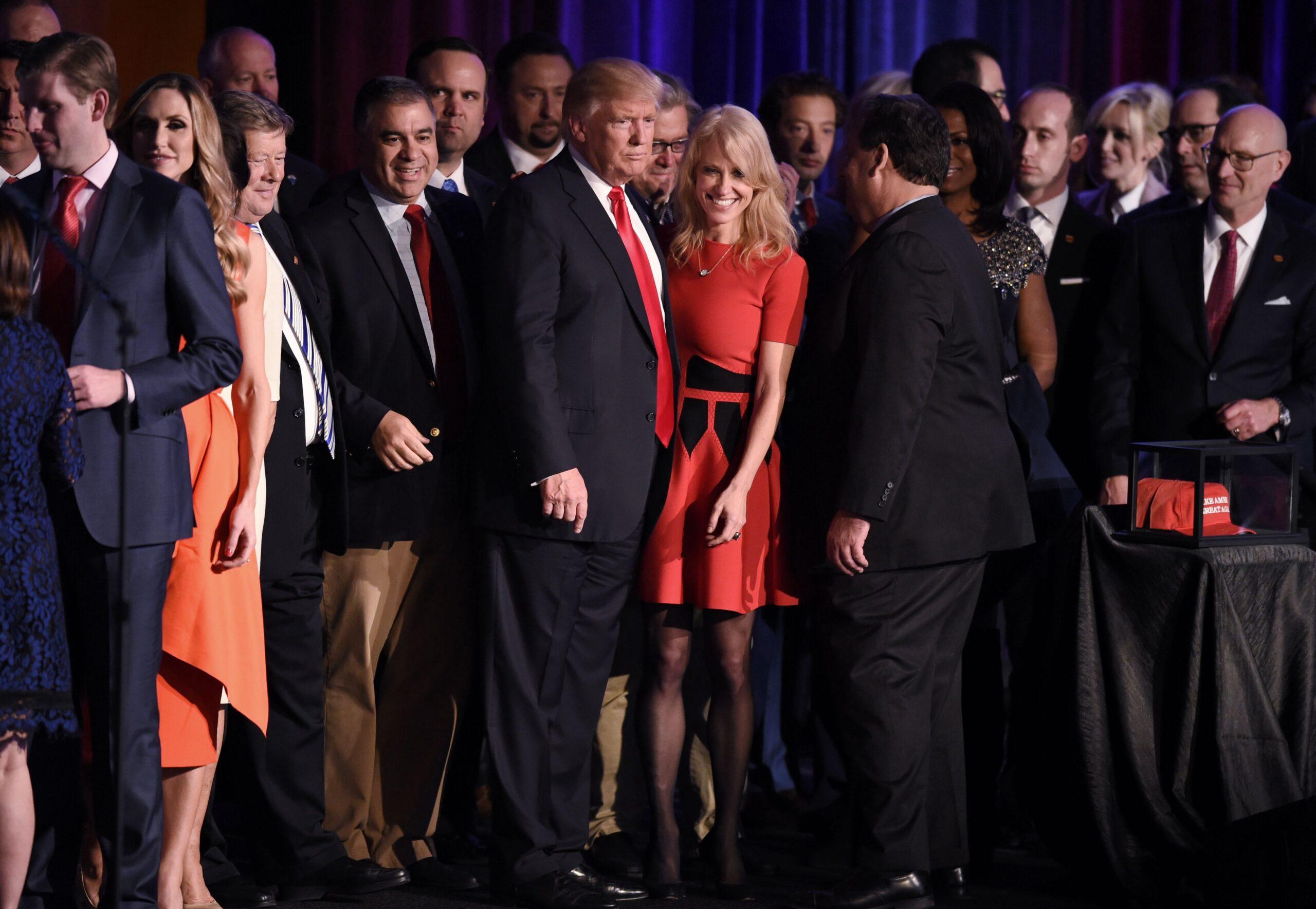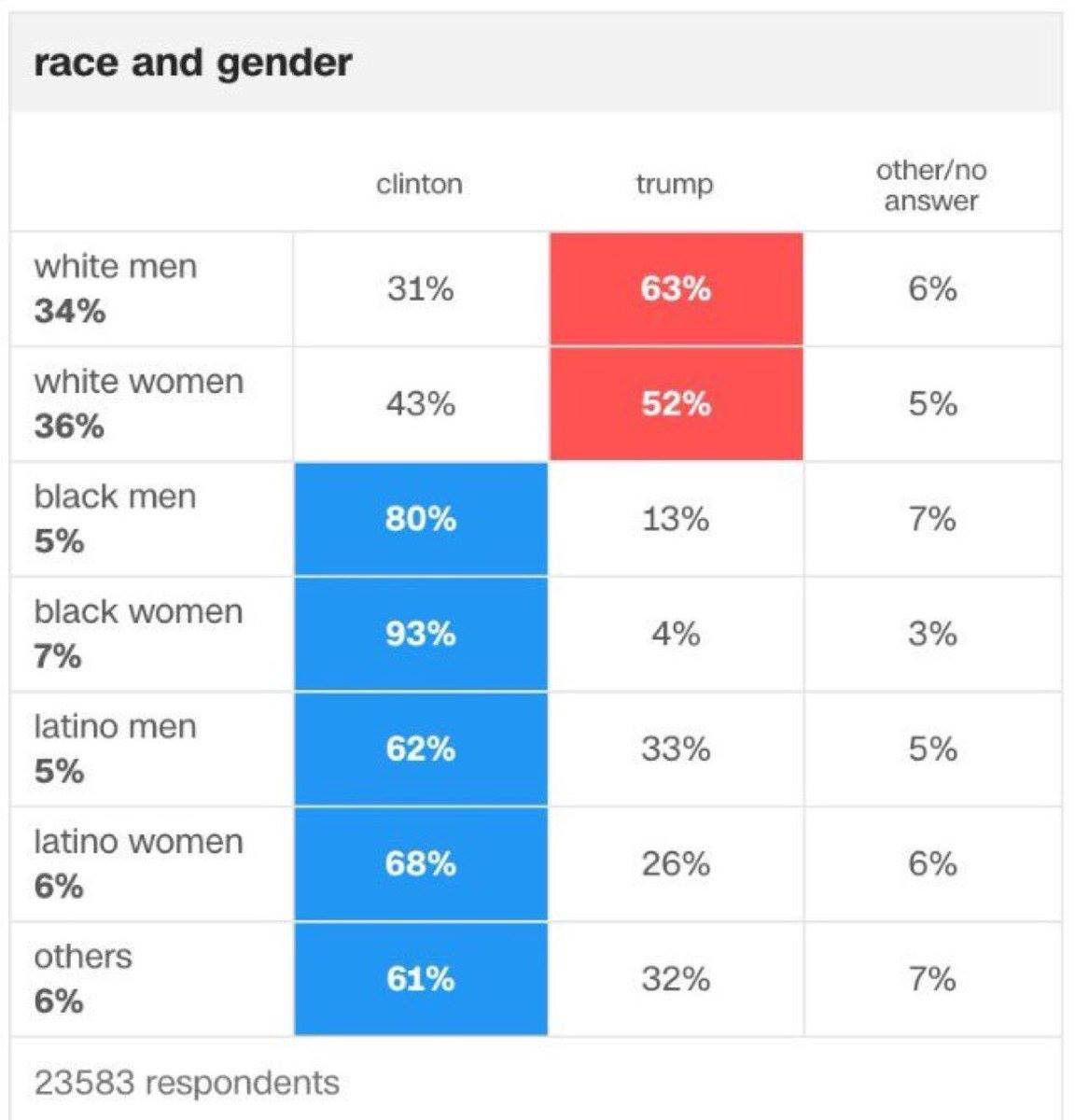My sister is disappointed, and my friends say they’re afraid.
Following Donald Trump’s surprising victory over Hillary Clinton in the presidential election on Tuesday, a great number of American blacks, women, Muslims, and immigrants have expressed, and continue to express, shock, horror, disgust, and mortal fear at the prospect of a Trump administration. On Wednesday night, street protests erupted in more than 25 cities, including New York, Chicago, and Oakland. The fear that animates these protesters will not subside just because police in riot gear and sunrise inevitably disperse these crowds. They’ll be back.
This post-election angst is, to some extent, just the way these things tend to go; I used to work and volunteer for all sorts of Democratic campaigns, including Tim Kaine’s successful ’05 run for governor of Virginia. Losses always come with that sad-sack feeling, sometimes with sweeping and melodramatic conclusions about the future of democracy and the good standing of our republic. But Trump’s election is quite different; I’d say it’s uncanny. Trump isn’t just some dubious Republican winner whom dorm-room liberals resent as a matter of course. Trump campaigned rather frankly on a platform that included talk of border closings, deportations, militarism, and massive global disruption.
On election night, a colleague of mine — we’re both black — told me he was scared. Before the presidential race broke in Trump’s favor, he had been hiding from the news coverage altogether, but one too many alarming texts from one too many distraught friends had basically told him all that he needed to know. I asked him to explain his fear; I wanted to compare his to mine. “My first thought was about the future of policing,” he told me. “That’s what I thought about when I finally went to bed. The police.”
This sounded about right to me: I’d also thought about the police, about white, off-duty cops that I’ve eavesdropped on on my own Brooklyn block describing Black Lives Matter as “the nigger shit,” about the scenes of protest that have defined the resurgent civil rights movement. I also recalled the many dramatic news sound bites about the politics of resentment that echoed immediately following the Brexit vote and then, globally, ever since. I fell asleep under the weight of these concerns, waking just as the Fox News cameras cut to Donald Trump late on election night. As the president-elect took the stage at his New York Hilton Midtown victory party to address the crowd — a sea of white men in red MAGA caps — he was flanked by dozens of family members and senior surrogates, such as the law-and-order warlock Rudy Giuliani and the roundly humiliated sycophant Chris Christie.

Toward the end of his prepared remarks, which he read capably from the teleprompters, Trump rattled off a roll call of a couple dozen of those supporters, many of whose names have quickly floated to the top of the short list for senior appointments in his upcoming administration. As Trump called them out, one by one, the cameras zoomed out from the podium and panned sideways to reveal his grand coalition of potential appointees and advisers, rolling at least 30 deep, as overwhelmingly male and almost entirely white. Indeed, these were the evening’s real winners.
Trump’s election is just the beginning of a massive white backlash; a repudiation of the first black president, Barack Obama, and his two terms in office, and a dramatic endgame in the war for American identity. The following CNN exit poll breakdown, which has been making the rounds on Twitter after the election, encapsulates the culture clash that many observers assume fueled Trump’s political rise, and his victory:

The overall survey breakdown sorts respondents by party affiliation, age, race, gender, and income. The “race and gender” analysis reveals that white men and white women say they voted for Trump, whereas every other group says it voted for Clinton. So here we have an ominous racial divide made plain by the data. Trump’s victory is a bit more complicated than a full-on race war, as journalists at The New York Times and Jacobin have noted. “Clinton suffered her biggest losses in the places where Obama was strongest among white voters,” Times reporter Nate Cohn tweeted early Wednesday morning. “It’s not a simple racism story.” Fair enough. But where the electoral math ends, and Trump’s governing agenda begins, it is clear that white American men are the only demographic totally missing from the president-elect’s political hit list. This man who assumes that “the working class” and “the inner city” are totally unrelated slices of America will presumably address white Americans (“the working class”) above all.
This, at the very least, is where President Obama fulfilled the implicit promise of his historic candidacy as his supporters, and even moderate detractors, understood it on election night in 2008. For all of his rhetorical shortcomings with regard to recent police shootings and the modern civil rights movement, Obama effectively imagined government as a stage on which the diversity of American perspectives, insight, and expertise might assemble to manage this country — this superpower — in more inclusive and broadly accountable ways. The U.S. Department of Justice, home to the FBI, is arguably the American government agency with the most fraught history of intolerance and persecution. And yet, for eight years, Obama, Eric Holder, and Loretta Lynch turned the DOJ black. Obama nominated his erstwhile 2008 rival, Hillary Clinton, to lead the State Department from one period of Middle Eastern upheaval to the next. He appointed the first openly transgender White House staff member. These small demographic coups can seem like trivial inroads if American politics has never disenfranchised you, and your kind, as a matter of public policy or constitutional law. They are not.
There are strains of conservative grief as well as leftist critique that consider identity politics — so uniquely obsessed with representation and questions of self — a superficial concern. And look, I’ll agree with the eye-rollers that the language of identity politics, at its worst, is cynically deployed, self-obsessive gibberish. “Wokeness” is a confidence game played by coastal social climbers, and it’s safe to say, now, that the Clinton campaign played it poorly. But that language, and that activism, has helped reel countless Americans in from the margins toward more social tolerance. The Obama administration, for all its faults abroad, was a quiet dawn of diversity and inclusion as a fundamental consideration of public service.
And then comes dusk. Holder and Lynch will quite possibly be succeeded by Giuliani, a cynical strongman if there ever was one. (Worse yet, he might be our next secretary of state.) The fear isn’t just that Trump will replace a diverse Cabinet with a homogeneous one, but that he will also replace a meticulously inclusive administration with a parade of old white men who will proudly dismantle that framework, with no sense of how much their vision for the United States resembles South Africa in the previous century. My people call this “hustling backwards.”
On Election Day, white American voters — male and female, from the wealthy to the working class — signed a four-year blood pact with Donald Trump to rescue them, somehow, from demographic obliteration. The exit polls show that 61 percent of voters believe the country is on the wrong track, and they would know: A great number of them had just voted to derail it. I’m afraid this will hurt us much more than it will hurt them.
